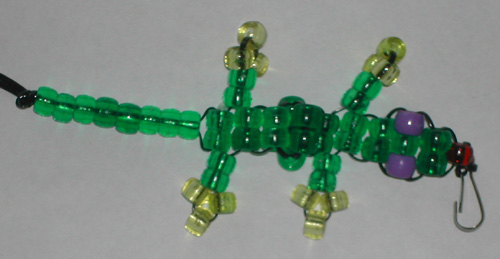As usual, there are more interesting tidbits in the science-y blogosphere than I have time to deal with sensibly, so it’s time for me to pass you some links:
- Over at Cosmic Variance, Sean takes note of a finding that kids in the U.S. may think they’re better at science than they really are. On the one hand, I find it refreshing that science teachers may not be as effective as I feared at convincing students that science is way too hard for anyone of normal intellect to learn. On the other hand, it would sure be nice if science teachers could impart more scientific knowledge with that self-confidence.
- Speaking of self-confidence, Chad at Uncertain Principles comments on a sociologist’s success passing himself off as a physicist — to actual physicists. I agree with Chad that this isn’t an indictment of the field of physics, since Harry Collings, the sociologist in question, achieved this feat of “passing” as a physicist by learning enough to write good qualitative answers to questions about gravitational waves and detectors. Writes <a href="“>Chad:
[T]he reason why the experts picked Collins’s answers: he didn’t use any math. The real expert threw in a lot more technical jargon, and the expert judges thought that it sounded like somebody trying too hard to impress people. This probably indicates that most experts are deluding themselves about the degree to which they avoid jargon in explaining things to each other and to the public.
This suggests something further to me: physicists don’t fall into the same trap that non-scientists (and science students) often fall into of assuming the more complicated/math-laden/jargon-filled someone’s explanations, the smarter they must be. This fact about physicists pleases me.
- Meanwhile, Rob at Big Monkey, Helpy Chalk has his students doing a lovely exercise in critical thinking and reading: tracing errors in transmission between press releases and newspaper stories on the Artic winter sea ice cover. Do you suppose they do exercises like this in journalism school?
- Finally, having seen a media circus up close, Pinko Punko at Three Bulls! is not feeling good about the state of science journalism The potential routes for really fixing the problem, given where we are now, seem extreme — so, I’ll be blogging about my cunning plan soon!
If there are other good science-y posts you’d like to bring to our attention, please share them in the comments!

